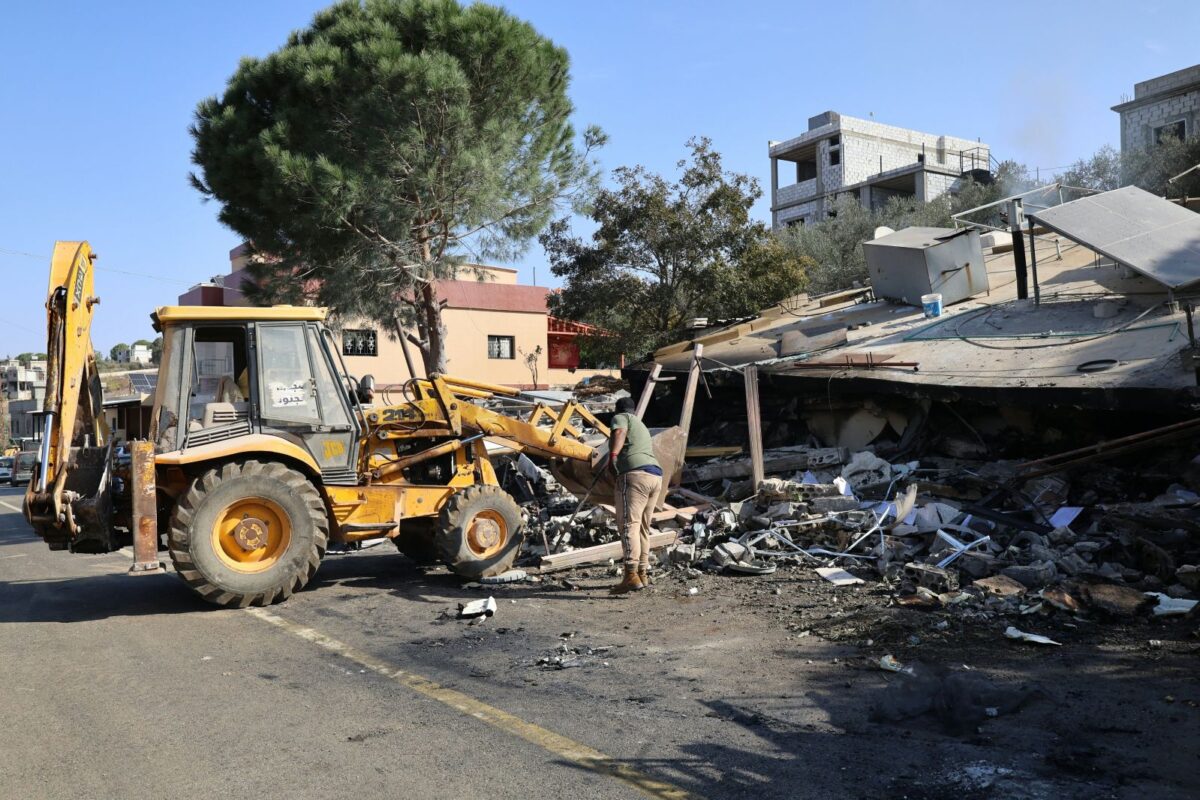
Each time the slogan “Let’s negotiate peace” resurfaces in Lebanon, it is met—on the other side—with Israeli reports about Hezbollah’s “rebuilding of its military capabilities,” or with complete silence. The problem is not the call for peace talks itself, but the illusion that announcing an intent to negotiate can substitute for the capacity of a functioning state. Peace, any peace, cannot rest on declarations; it requires sovereignty in practice and the monopoly of decision-making, arms, and borders by one state. Anything less is a façade—peace in appearance, collapse in essence.
The starting point must be clarity: Thomas Barrack’s recent approach does not represent “U.S. policy.” It is a personal diagnosis wrapped in old delusions—hand Lebanon to Hezbollah in exchange for an ambiguous promise of calm and prosperity. This is not the logic of a state but of a deal. Experience has already shown that such shortcuts only deepen fragmentation. When Washington truly wishes to push for meaningful talks, it knows that negotiations begin with a capable Lebanese state, not with an armed proxy or a political class that governs by evasion.
For Israel, Lebanon is not a political partner but a security challenge, because the image of the Lebanese state—domestically, regionally, and internationally—is fractured, not to say non-existent. What could possibly convince a rival or ally that Lebanon is a serious counterpart at the negotiating table when its institutions cannot enforce the law within their own borders? Any negotiation not guarded by a sovereign state inevitably turns into a security arrangement managed by power, not law.
That is why the first task is not to “negotiate” but to rebuild the credibility of the state on three interconnected fronts: locally, regionally, and toward the international community.
Domestically, Lebanon must restore the very concept of the state: an independent judiciary capable of prosecuting corruption, a civil administration ruled by merit rather than sectarian quotas, and security forces that exercise legitimate monopoly over force—from the South to the Bekaa to the capital. These are not slogans but conditions of existence. Without them, even UN Resolution 1701 remains truncated—applied south of the Litani but ignored elsewhere—when sovereignty must cover every inch of territory and every act committed in Lebanon’s name.
Regionally, Beirut must send a clear message to the Gulf and other Arab capitals: we seek support to rebuild the state, not to fund its limbo. States invest in institutions, not in vacuums filled by extra-legal weapons. Our Arab partners are weary of the rhetoric of “gradualism,” which has become a euphemism for paralysis. Regional aid will flow only when Lebanon’s leaders declare, without ambiguity, that the state’s weapons are the only weapons, and act accordingly, and that foreign policy is shaped in Beirut—not in dispersed rooms hosting foreign clients.
Internationally, Lebanon must exit the zone of “permanent exception” and enter that of commitment: present a public roadmap with clear timelines to implement international obligations—from securing borders and ending the smuggling economy to restructuring the financial and electricity sectors with transparency. The international community is not a charity; it deals with governments that plan and deliver. Once it senses genuine domestic seriousness, defending Lebanon’s interests becomes both credible and attainable.
The core conclusion follows naturally: Lebanon has no alternative but to use diplomacy as a tool. Weapons and corruption have jointly disfigured the country’s image—the first erodes sovereignty, the second devours the state. Diplomacy is not the opposite of power; it is the translation of legitimate power into political gains. Our strength lies not in an excess of rockets but in an excess of legitimacy: a living constitution, an independent judiciary, a productive economy open to the world, and one national army that negotiates from the standpoint of the state, not of a “faction.”
Realism, some may argue, demands action before reform. “Negotiations are a rare chance,” they say. But Lebanon has tried that script—and failed. Negotiations without a strong state produce only ink on paper. When the state restores its dignity at home, the entire negotiating table changes: peace becomes a solid national choice, not a leap into the void. Only then can Lebanon sit with any party and declare with confidence: we have one decision, one border, one army—and these are our legitimate interests.
This is not idealism; it is the elementary grammar of politics when the goal is to protect Lebanon rather than preserve alignments. Lebanon has already tested temporary “truces” under the shadow of arms and “reforms” under the weight of corruption. The result was an economic, social, and institutional collapse unprecedented in its history. The opposite path is well-known: full sovereignty, effective institutions, and an active diplomacy that fights for Lebanon’s interests rather than for excuses.
Announcing negotiations is a rhetorical act; building the capacity to negotiate is the work of governance. When the state regains its place, Lebanon will once again merit its name—a homeland that does not bargain over its sovereignty, a partner respected politically rather than tested militarily. Only then will any eventual agreement, whatever its title, express the will of the Lebanese, not mask their weakness.
This article originally appeared in Elaf
Makram Rabah is the managing editor at Now Lebanon and an Assistant Professor at the American University of Beirut, Department of History. His book Conflict on Mount Lebanon: The Druze, the Maronites and Collective Memory (Edinburgh University Press) covers collective identities and the Lebanese Civil War. He tweets at @makramrabah







